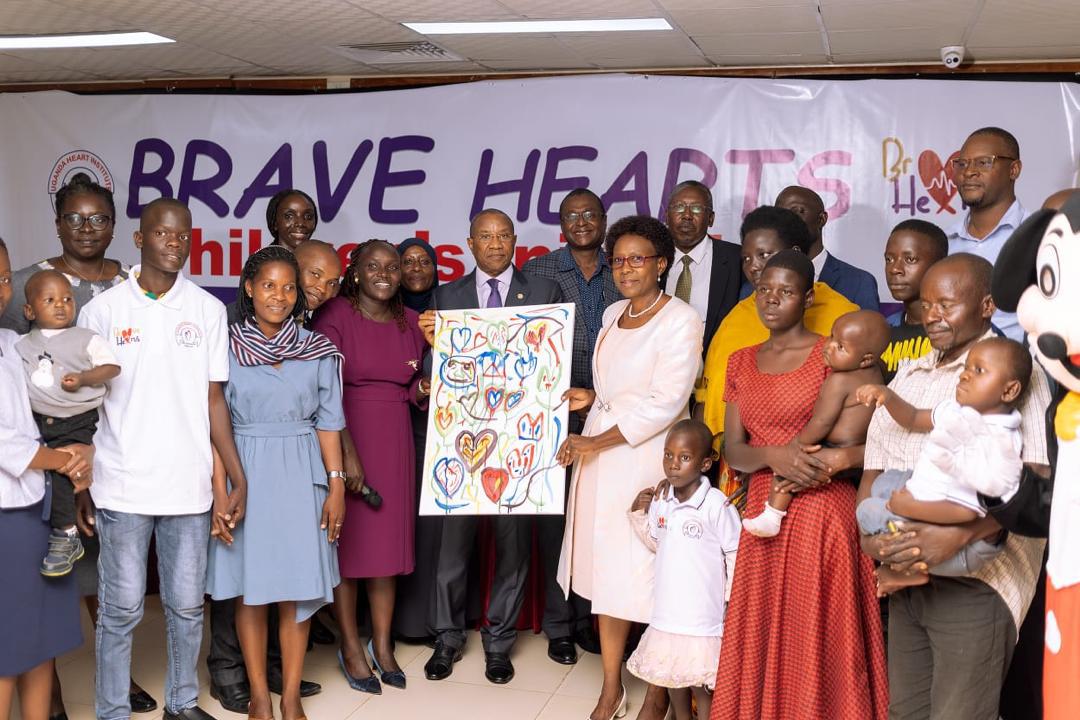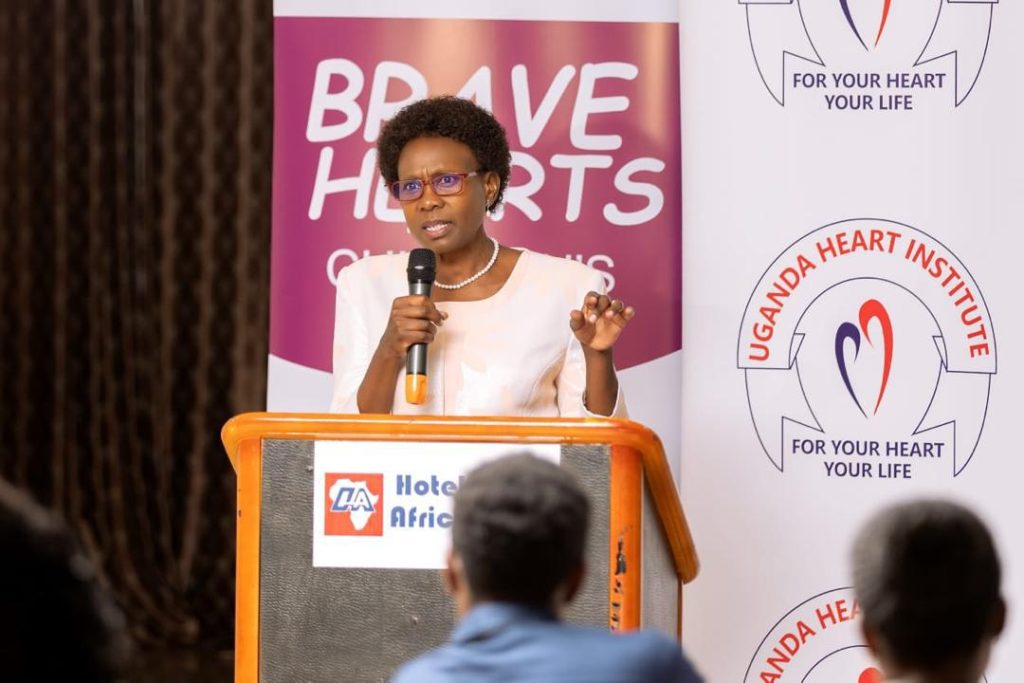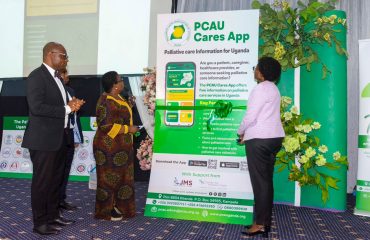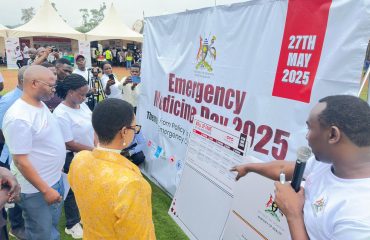
In the heart of Uganda’s evolving healthcare story lies a powerful and transformative journey, one centered on courage, resilience, and the growing success of pediatric cardiac care. At the forefront of this journey is the Uganda Heart Institute (UHI), now a beacon of hope for thousands of children born with congenital heart disease.
Congenital heart disease (CHD) remains one of the most common birth defects worldwide, and Uganda is no exception. Each year, an estimated 16,000 Ugandan babies are born with CHD. Of these, around 2,000 suffer from complex forms that require advanced intervention, sometimes even beyond our borders.
But today, Uganda is shifting the narrative. Through initiatives like Brave Heart, we are proving that timely diagnosis, local expertise, and strong partnerships can rewrite the futures of children born with heart disease.
Years ago, a heart murmur heard in a child often meant an untold fate, a reality Dr. Jane Ruth Aceng, Uganda’s Minister of Health, remembers from her medical training. “We knew many of those children would eventually pass away,” she recalled at a recent Brave Heart Initiative event. “But today, we are celebrating survival and transformation. We have truly come a long way.” She added.
Thanks to dedicated teams and tireless innovation, congenital heart conditions are now being identified and treated right here in Uganda. The most common defect, Ventricular Septal Defect (VSD), a hole in the heart’s lower chambers accounts for 26.7% of CHD cases in children. It’s closely followed by Patent Ductus Arteriosus (PDA), a condition where a fetal blood vessel fails to close after birth, affecting 22% of cases.
These conditions, if detected early, can be corrected through minor interventions. Many procedures now take under an hour, and survival rates reach up to 98%. Children go on to breathe easier, gain weight, and thrive.
Brave Heart is more than a campaign, it’s a call to action. It brings together policymakers, medical professionals, and communities with a shared vision to ensure that every Ugandan child with heart disease receives the care they need.
Through this initiative, Uganda is strengthening its healthcare infrastructure, particularly at regional referral hospitals. Closed-heart surgeries are now being successfully performed in Mbarara, Jinja, and Lira, thanks to dedicated teams and strategic partnerships.
And the results are inspiring. In just the first five months of 2025, UHI has performed 55 pediatric heart surgeries, equal to the total number conducted in an entire year when the program began. These surgeries included treatment for PDAs, VSDs, and other complex cases like Tetralogy of Fallot (TOF), a life-threatening condition involving four major heart defects.
One success story stands out: a 19-year-old patient with TOF, the oldest ever treated at UHI. After a successful surgery, he’s now back in school, active, and healthy. “He wasn’t even talking before, Dr. Judith shared. “But now, he has a future.”
Brave Heart’s achievements underscore a growing trust in Uganda’s health system. Families from across the country, even from rural areas like Koboko and Moroto, now seek treatment at home instead of abroad. They trust what is “built and made in Uganda.”
But the journey isn’t over. Challenges persist especially in accessibility and parental involvement. “Where are the fathers?” Dr. Aceng asked, highlighting the critical need for male engagement in child health. Many mothers are navigating these journeys alone, and change must begin with community accountability and inclusion.

Uganda is making significant strides in combating congenital heart disease (CHD), the leading birth defect among children, through the Brave Heart Initiative and expanded efforts by the Uganda Heart Institute (UHI).
Speaking at the 2025 Brave Heart event, Hon. Dr. Ruth Aceng, Minister of Health, celebrated the transition from a time when children with heart defects were expected to die, to today where survival and full recovery are possible. “We are no longer sending children home to die. We are celebrating life,” she said.
Dr. Judith emphasized the importance of strong partnerships, early diagnosis, and regional outreach. From January to May 2025, UHI successfully performed 55 pediatric heart surgeries, matching the total surgeries done in a full year when the program began.
Dr. Omagino, UHI Director, reported a well-structured referral and surgical system, with trained personnel deployed nationwide. With support from the government, including a $5 million grant from the President and a $100,000 donation from Chain of Hope, UHI has eliminated diagnostic backlogs and scaled up interventions.
“Every hospital must refer children with suspected heart disease. We have the systems in place, no child should die from a treatable condition,” Dr. Omagino stated.
With a survival rate of 95-98% when CHD is treated early, the Brave Heart Initiative continues to offer hope to thousands of Ugandan families, signaling a future where heart disease is no longer a silent killer among children.
As Uganda continues to expand its pediatric cardiac care, the focus remains clear: early diagnosis, accessible interventions, regional outreach, and above all, a compassionate mindset. Every child deserves a chance, not just to survive, but to live fully.
And the data proves the vision is working. In 2022, a UHI study showed that 76% of children attending the cardiac outpatient department had congenital heart conditions. With growing resources and awareness, these children no longer face silent battles, they face healing, with dignity and support.
The Brave Heart Initiative is not just saving lives, it is restoring dreams. From children gaining weight after surgery to teenagers returning to school, Uganda is building a future where congenital heart disease is no longer a death sentence, but a treatable condition.
Communications Officer
Government Citizens Interaction Centre
State House.



